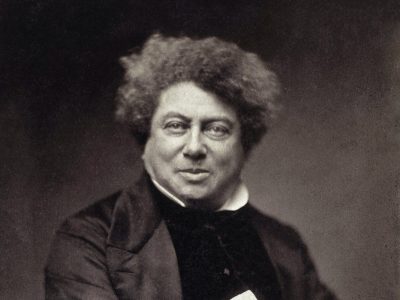Famous People of African Descent: Thomas Dumas, France

Dumas, France’s Black General (Image: Wiki Commons)
Thomas-Alexandre Dumas: The Black General of France
Long before France knew Napoleon as its military genius, another name captured the nation’s imagination—Thomas-Alexandre Dumas. Born to an enslaved African woman and a French nobleman, Dumas shattered barriers of race and class to become one of France’s most celebrated military leaders during the Revolution.
His story is one of courage, betrayal, and legacy. A man of towering strength and unwavering moral compass, Dumas fought not just for France but for freedom and dignity in an age of contradiction.
From Enslavement to Nobility – A Warrior Without Equal
Thomas-Alexandre Dumas was born in 1762 in Saint-Domingue (modern-day Haiti), the wealthiest French colony at the time. His mother, Marie-Cessette Dumas, was a Black enslaved woman. His father, Alexandre Antoine Davy de la Pailleterie, was a French aristocrat who sold Thomas’s siblings into slavery but brought Thomas with him to France and freed him.
In France, Thomas-Alexandre enjoyed the privileges of nobility. He was well-educated and trained in the arts of riding and fencing. As a young man, he joined the French military—but under his mother’s name, “Dumas,” rejecting his father’s aristocratic title in protest of his treatment of his enslaved family.
Dumas rose quickly through the ranks, thanks to his raw strength, daring leadership, and charismatic presence. During the French Revolution, as France tore down its monarchy and fought invading royalist armies, Dumas stood out.
In a time when few people of African descent held positions of authority in Europe, Dumas was made General-in-Chief of the Army of the Alps, commanding tens of thousands of men. He led daring campaigns across the treacherous mountains and held off Austrian forces with strategic brilliance.
By age 32, he had become the highest-ranking Black man in a Western army. His soldiers admired him deeply. His enemies feared him. French citizens called him “the Black Devil” for his exploits in battle.
Clashing with Napoleon
But Dumas’s rise came with a cost. His integrity and outspokenness often put him at odds with political elites, most notably, Napoleon Bonaparte.
When Dumas joined Napoleon’s Egyptian campaign in 1798, tensions boiled. Dumas disapproved of Napoleon’s authoritarian leadership and the looting of foreign lands. The two clashed, and their relationship never recovered.
On the return journey, Dumas’s ship was stranded in the Kingdom of Naples, where he was imprisoned for two years in harsh conditions. He was denied access to proper food and medicine. By the time he returned to France, his health was broken.
Despite his service and sacrifice, Dumas received no military pension. Napoleon, now Emperor, refused to reinstate his rank. Dumas died in 1806, poor and largely forgotten, at the age of 43.
But his story didn’t end there.
His son, Alexandre Dumas, would go on to become one of France’s greatest novelists, author of The Three Musketeers and The Count of Monte Cristo. He drew inspiration from his father’s life, crafting stories filled with bravery, betrayal, and justice.
A Legacy of Courage
Today, Thomas-Alexandre Dumas is remembered as a pioneer, a hero, and a symbol of possibility. He proved that a man born into slavery could command armies, challenge empires, and inspire nations.
In 2002, French President Jacques Chirac honoured him by reinterring his remains in the Panthéon, France’s tomb of national heroes—alongside Voltaire, Rousseau, and Victor Hugo.
His statue in Paris stands tall, sword in hand, riding on horseback—a reminder of what it means to rise above circumstance.
Thomas-Alexandre Dumas lived at the crossroads of race, revolution, and power. His life challenged the European notion of Black inferiority. His excellence exposed the lie at the heart of slavery and racism.
He wasn’t perfect—no revolutionary ever is. But he stood for something larger than himself: the right to lead, to fight, and to dream, no matter your skin color or birthplace.
His legacy resonates today in a world still wrestling with inequality and exclusion. For Africans and descendants of the African diaspora, Dumas’s story affirms that we belong in every space—on the battlefield, in literature, in government, in the archives of greatness.
At Feelnubia, we lift up stories like Thomas-Alexandre Dumas’s not just for their historical value but for their living power. His journey—from bondage to command—proves that greatness knows no color. His downfall reminds us of the costs of truth-telling in unjust systems. And his legacy lives on in every Black child who dares to lead.
He was a warrior, a trailblazer, and a father of stories that would shape generations.
Thomas-Alexandre Dumas (1762–1806) was not just a general. He was a revolution. And his fight for freedom, justice, and legacy continues in us all.
Learn about other Famous People of African Descent
